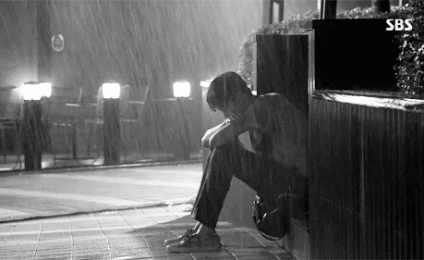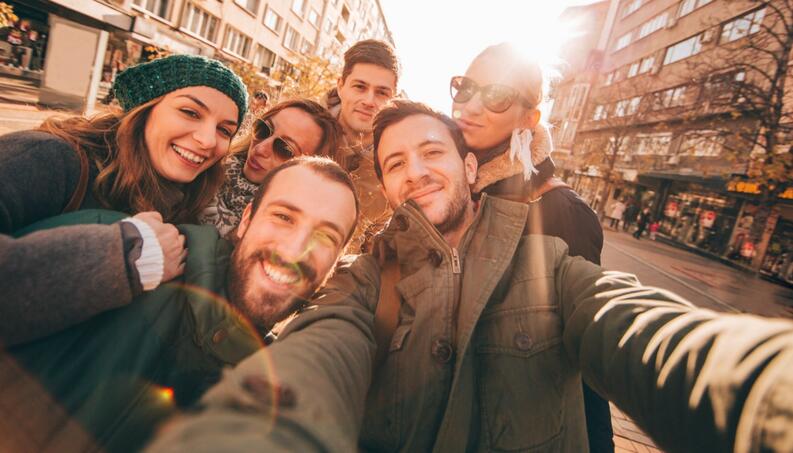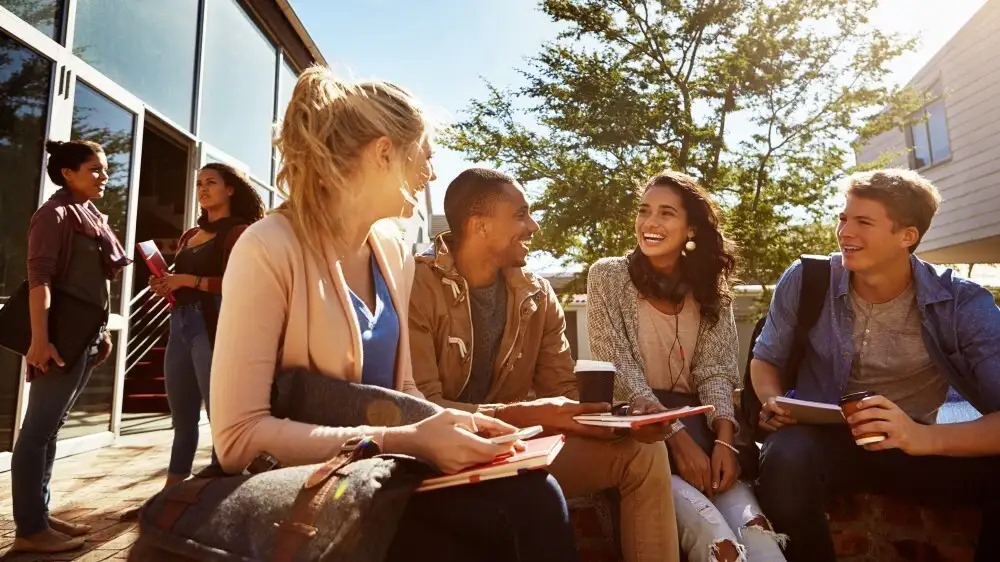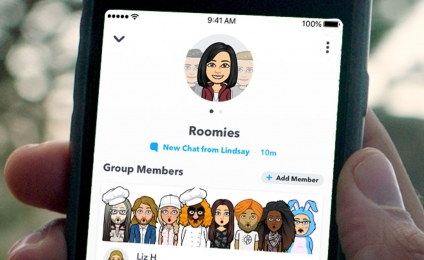Making new friends can sometimes feel like you're stepping onto a stage with no script. It’s awkward, a bit intimidating, and full of unknowns. But let’s be honest—friendship is one of the most enriching parts of life. Our friends shape our identity, amplify our laughter, soften our struggles, and become our chosen family in many ways. Without them, life would be a lonelier, greyer version of itself. Who we become often hinges on the people we walk alongside.
If you're actively seeking new friends, one of the most important steps is understanding the type of connection you're actually looking for. Not all friendships are created equal. Broadly speaking, there are three distinct categories of friends, and each serves a different purpose in your social world.
1 – The “Hey-Bye” Circle
These are your casual acquaintances—people you might greet in the hallway at work or nod at during your morning coffee run. You exchange a few pleasantries, maybe joke once in a while, but once the shared context (like work or school) fades, so does the connection. These friendships are light, situational, and don’t usually go deeper.
2 – Social Companions
These are the folks you hang out with occasionally, whether it's for lunch dates, weekend hikes, or group outings. You probably share a few interests and enjoy spending time together. Conversations are relaxed and usually revolve around everyday things. While not deeply personal, these friendships offer consistency and social engagement.
3 – The Real Deal: Soul-Level Friends
These are the rare gems—the people you can spill your heart out to, even if you haven’t spoken in weeks or months. They know your stories, your dreams, and your insecurities, and they love you anyway. You trust them implicitly, and they’re the ones who would drop everything to help if you needed them. These friendships transcend time and distance.
Most people aspire to build more of the second and third kinds. It’s easy to collect surface-level acquaintances, but the challenge is to foster friendships with depth and meaning. Personally, my own ratio used to be around 60% hi-bye friends, 30% social buddies, and 10% close friends. As the years passed and life got busier, that gradually shifted to 75% acquaintances, 20% casuals, and just 5% deeply trusted souls. I wouldn't be surprised if others see similar proportions in their own lives.
But here's the truth: regardless of whether you're seeking new lunch partners or lifelong confidants, it's entirely possible to meet and connect with the right people. And trust me—I say this from experience. I used to be the quiet kid, the one who preferred silence and solitude. Through school and even early college years, I kept mostly to myself. But once I joined university and entered the working world at P&G, something in me began to change. I started opening up more, speaking to people, and eventually, I found myself leading workshops and writing openly about my life.
Funny thing is, if you'd told my 12-year-old self that I’d someday help others through public coaching and blogging, I would've laughed awkwardly and retreated back to my room. But growth is real—and so is social transformation.
If you've ever watched someone effortlessly work a room or draw a crowd of friends around them, chances are, they weren't always that way. Social skills aren’t innate—they're learned, practiced, and sharpened over time. That means you, too, can learn to become more outgoing and build meaningful friendships, one small step at a time.
10 Actionable Tips to Help You Form New Friendships
1. Recognize That Fear Lives Mostly in Your Mind
Let’s start with something that holds back a lot of people: fear. Many of us tense up at the thought of meeting new people. What if they judge us? What if the conversation dries up? What if we say something dumb?
These fears create a mental wall, stopping us before we’ve even begun. We overthink, catastrophize, and suddenly talking to someone new seems like preparing for a job interview with no resume. But the thing is—most of this fear is just noise inside your head.
Truth is, 99% of people are way too caught up worrying about themselves to pay any real attention to you. While you’re panicking over your first impression, they’re probably doing the same. And for the remaining 1% who judge you based on a first interaction? Honestly, are those the kind of people you’d want as friends anyway?
Friendships aren't built on perfect opening lines. They grow from shared values, kindness, and connection. Don’t let imagined fear rob you of real-life connection.
2. Begin with People You Already Know
If the idea of mingling with strangers makes your palms sweat, that’s okay. Begin small. Start by reconnecting with people already in your orbit.
-
Message Old Acquaintances: Think back to classmates, old neighbors, or colleagues you haven’t seen in a while. A simple “Hey, it’s been a while—want to catch up over coffee sometime?” can rekindle more than just a conversation.
-
Join Familiar Groups: Do you know a friend who has an active social circle? Ask if you can tag along to a gathering or outing. You don’t have to force your way into the group—just observe, contribute where you’re comfortable, and see where it goes.
-
Meet Friends of Friends: If you're close to someone, there's a good chance their friends will vibe with you too. Let your friend make introductions and attend casual get-togethers.
-
Say Yes to Invitations: It’s tempting to stay in and binge-watch a series, but declining invites out of habit will keep your social circle small. Make the effort to show up—you never know who you might meet.
3. Put Yourself in New Environments
Once you're more comfortable within your known circles, push a little further and enter spaces where you can meet entirely new people.
-
Explore Meetup Groups: Websites like Meetup.com offer communities built around shared interests—from gaming and yoga to business networking. It’s a relaxed way to connect with people you already have something in common with.
-
Enroll in Classes or Workshops: Learning something new not only stimulates your brain, but it places you alongside people with similar goals. Whether it’s cooking, photography, or creative writing, shared learning creates bonding opportunities.
-
Volunteer for a Cause You Believe In: Nothing brings people together like working for a common cause. Volunteering is a beautiful way to meet generous, open-hearted individuals.
-
Attend Celebrations: Whether it’s a friend’s birthday, a New Year’s party, or a community event, social gatherings are ripe with possibilities. Even if not all conversations go deep, they help you stay socially engaged.
-
Test the Waters in Clubs or Bars: Not always ideal for building deep friendships, but worth trying out once or twice. Sometimes you’ll surprise yourself.
-
Engage in Online Communities: Believe it or not, some of my strongest friendships blossomed through online forums. From IRC channels years ago to Reddit and Facebook groups today, digital spaces are full of genuine, interesting people. Just participate sincerely and be consistent.
4. Be the One Who Makes the First Move
Okay, so now you're in the right place, surrounded by people. But who starts the conversation?
You do.
Don’t wait around hoping someone else will speak up. Smile, say “hi,” and ask something simple like, “How’s your day going?” or “What brings you here today?” Small talk isn’t about being profound—it’s just a door opener.
Once you get through that first hurdle, things often flow more naturally. Most people are relieved when someone takes the first step, because they didn’t want to be the first either.
5. Keep an Open Mind and Heart
a) Be Receptive to Differences
It’s easy to form a mental checklist for your “ideal friend”—same hobbies, same taste in music, same sense of humor. But that kind of thinking can shut doors before they open.
Some of my most meaningful friendships have been with people wildly different from me. Different upbringings, different careers, even different languages. What we shared wasn’t surface-level similarity, but mutual respect and a willingness to understand each other.
So if someone doesn’t check every box, give it time. Let the bond breathe before you judge.
b) Let Yourself Trust
Building new friendships requires a bit of emotional vulnerability. You need to believe—at least a little—that people are inherently good. If you’re guarded or suspicious, that tension shows, and it’ll make others cautious too.
Whenever I meet someone new, I try to connect with an open heart. I believe in their goodness until proven otherwise. This doesn’t make me naive—it makes me brave. And it’s led me to some of the most fulfilling connections in my life.
Whether it’s the people I meet in real life or the beautiful souls who read my blog and reach out, I find that being open attracts sincerity. Kindness flows where trust exists.
6. Invest Time Getting to Know Them as People
True friendship begins when you start seeing someone as more than just a “potential friend” and really try to understand who they are at their core. It's not just about hanging out—it's about showing curiosity, care, and a sincere interest in who they are as a human being.
Here are some thoughtful questions to help you dig deeper and build that personal connection:
-
What’s their day-to-day life like?
-
What hobbies or passions light them up?
-
Have they been working on any personal projects or goals?
-
What’s something they’re currently excited—or even anxious—about?
-
What do they care about most in life?
-
What kind of values do they live by?
-
What drives them when they wake up in the morning?
-
What are their long-term dreams or quiet wishes they don’t often share?
These questions aren’t just “conversation starters”—they’re a window into someone’s soul. Ask them at the right time, listen attentively, and share a bit of your own story too. That’s where friendships truly begin to take root.
7. Approach Friendship With Genuine Intent
Let’s be honest: it’s easy to get caught up in self-consciousness when meeting someone new. You’re thinking about your hair, your clothes, your jokes, your timing. But in doing so, you end up focused on your own performance rather than the connection.
Friendship isn’t a performance. It’s a relationship.
The key is to approach people from a place of authenticity. Don’t talk to them because you feel obligated or want something. Talk because you care. Smile because you mean it. Ask questions because you’re truly interested in the answer.
When you approach others from a place of warmth and sincerity, that energy comes through—and people are drawn to it. Real recognizes real, and your authenticity will attract the right kind of people into your life. The ones who stick around.
8. Never Pretend to Be Someone You're Not
This may be one of the biggest traps when forming new connections: changing yourself to fit what you think others will like.
Maybe you act extra outgoing to seem funnier. Maybe you pretend to like certain music, movies, or even opinions just to get closer to someone. In the short term, this might seem like it works—but over time, it creates a false version of you that’s hard to maintain.
Here’s the problem: if you made friends while playing a role, you’ll eventually hit one of two walls:
-
You’ll exhaust yourself trying to keep up the act, and start to resent the relationship because it doesn’t allow you to just be you.
-
Or, you’ll revert to your authentic self, and your friends will be confused or even distant, realizing that the connection they thought they had was based on a version of you that doesn’t really exist.
Either way, it’s a dead-end.
Instead, be yourself from day one. Be honest about your quirks, your interests, even your quietness. If you’re introverted, you don’t need to fake being a social butterfly. If you’re reflective, you don’t need to pretend to be a comic. The people who connect with you as you are will be the ones worth keeping around.
The strongest, most fulfilling friendships are rooted in truth and acceptance. Let them know you—not a version of you you think they’ll like.
9. Show Up When It Matters
Real friendship isn’t just about making memories during fun times. It’s about showing up—especially when things aren’t so fun.
Think about it: we all have those friends who only come around when it’s convenient or celebratory. But true friends are there when things are messy, uncertain, or painful.
Ask yourself: is there a friend of yours going through a tough time right now? Could they use a hand or just someone to listen?
Support them not because you want to score points or earn future favors. Help because you want to help. Be the friend you’d want to have.
Emotional generosity—offering your time, your ear, your presence without expecting anything in return—is one of the highest currencies in friendship. It’s what deepens bonds, builds trust, and creates that unspoken promise: “I’ve got your back.”
You’ll often find that the joy and meaning you gain from truly being there for someone outweighs anything they could possibly do in return.
10. Maintain the Connection With Consistent Effort
Friendship, just like any relationship, needs nurturing. It’s not about constant texting or meeting every week, but it is about consistent care and effort.
The difference between a casual acquaintance and a lifelong friend often lies in the intention to stay in touch. Check in with your friends regularly—even a simple message saying, “Hey, I was thinking of you today” can go a long way.
If your lives are packed and your schedules never match up, get creative. Suggest lunch breaks, coffee meetups, late-night calls, or even voice notes to catch up. If you live far apart, use the dozens of tools available—text, Zoom, WhatsApp, email, anything.
Some of my closest friends are people I only meet in person every few months. But every interaction we have is meaningful because we never stop showing up—even virtually.
It’s not the quantity of time that defines the friendship; it’s the quality and consistency of effort. Never let distance or busyness be an excuse to drift away from those who matter.

17 Clever Ways to Find Friends After Moving to a New Place
Starting over in a new city can be thrilling… and totally disorienting. You’re navigating unfamiliar streets, routines, maybe even a different culture. One of the most challenging parts? Rebuilding your social life from scratch.
But it’s not impossible. In fact, it can be exciting—if you approach it with intention. Here are 17 smart strategies to spark new friendships in unfamiliar territory:
1. Ask Your Friends to Connect You
Got friends in other cities? Ask if they know anyone in your new town. Most people are happy to introduce you to someone they trust. A quick message or dinner invite can turn into a meaningful new connection.
2. Get Active on Meetup
Head over to Meetup.com and look up groups centered around your interests. Whether you're into writing, hiking, tech, or board games, chances are there’s a meetup near you. Join a few and show up—you never know who you’ll vibe with.
3. Get a Dog (Seriously)
Dog parks are social goldmines. If you're able to adopt a furry friend, it's an easy (and adorable) way to meet other dog lovers. If not, volunteer to walk someone else’s dog or hang out at the park—you’ll still meet people.
4. Explore Your City, Solo
It may seem daunting to wander alone, but that’s when people are most likely to approach you. Bring a book or grab coffee in a busy plaza. People are more inclined to strike up a conversation when you're not already in a group.
5. Spend Time with Co-Workers
Start grabbing lunch with colleagues. Over time, these simple interactions can grow into real friendships—and open the door to invites outside the office too.
6. Look for Local Sports or Hobby Clubs
Most cities have adult leagues or classes for everything from soccer to salsa dancing. Even gyms or yoga studios offer chances to see familiar faces and start conversations naturally.
7. Sign Up for a Continuing Ed Class
Always wanted to learn Italian or improve your cooking? Local colleges and rec centers offer classes where you’ll find people eager to learn—and connect—just like you.
8. Check Out Event Apps Like Nearify
Use apps to discover local events: live music, food festivals, art shows, and more. Even if you go solo, you’ll be surrounded by people who share your curiosity.
9. Don’t Be Afraid to Make the First Move
If you meet someone cool, say it! “I’m new here and still trying to make friends—want to grab a coffee sometime?” It’s honest, flattering, and surprisingly effective.
10. Break Bread with Supper Clubs
There’s something magical about sharing a meal—it relaxes people, encourages conversation, and helps you feel a little less like a stranger in a new place. Supper clubs or community dinner events are fantastic ways to meet locals who also enjoy good food and meaningful connections.
You don’t have to be a master chef or wine connoisseur. Just show up hungry for connection—and maybe dessert.
11. Be the Photo Person at Events
Snapping photos at parties or social events is an underrated friendship hack. People often want copies of pictures afterward, which gives you the perfect excuse to connect: “Hey, want me to send you the pics? Are you on Instagram or Facebook?”
Boom—contact made. And once you’ve exchanged details, following up and starting a conversation becomes that much easier.
12. Attend Free Cultural Events
One of the best things about moving to a new city is the abundance of cultural happenings: outdoor concerts, gallery openings, food tastings, open-air film screenings, pop-up markets—you name it.
These events are usually relaxed and social, and even if you go solo, they provide instant conversation starters with others around you.
13. Open Up and Be Real
Vulnerability isn’t just a buzzword—it’s a powerful social tool. If you want a connection to go beyond small talk, you have to be willing to let people see a bit of the real you.
That doesn’t mean trauma-dumping on a first meeting, but it does mean being honest about where you’re at. “I just moved here, and I don’t know many people yet,” is relatable and shows your willingness to build something real.
Surface-level chatter won’t build lasting friendships. A little honesty will.
14. Explore Tools Like City Socializer
Apps like City Socializer are designed to help people meet others in urban spaces. Think of it as the friendly, social version of location-based apps—except instead of dating, you’re discovering locals who want to hang out, explore the city, or form social circles.
Plus, these platforms often highlight cool, lesser-known spots that even long-time residents haven’t discovered yet.
15. Start Saying “Yes” More Often
It’s so easy—so tempting—to stay in your comfort zone after a long day. But if your default answer is always “maybe next time,” you’ll miss out on all the organic moments where friendships could’ve begun.
Next time someone invites you to an event, even if it’s a little outside your vibe—say yes. Try it out. Even if it doesn’t spark a lifelong friendship, it’s one step closer to finding your people.
And hey, worst case? You’ll have a story to tell.
16. Volunteer Where Your Heart Is
Volunteering in your new city is a double win: not only are you doing something meaningful, but you're also connecting with others who care about the same cause.
Whether you’re helping with local food banks, mentoring youth, cleaning up parks, or supporting animal shelters, you'll naturally form bonds with people who share your values—and friendships rooted in purpose tend to run deep.
17. Follow Up and Stay Engaged
Let’s say you met someone great at a cooking class or weekend market. You shared laughs, swapped numbers, and then… nothing. It’s easy to let those early sparks fizzle out if you don’t follow up.
Real connections take real effort. Send a quick message a few days later: “Hey, I really enjoyed chatting with you at the event—want to grab coffee next week?”
Even if it feels awkward at first, consistency is the key that turns chance encounters into solid friendships. Don’t just plant the seed—water it.
One Last Thought
Making friends—whether you're moving to a new place, starting over, or just craving deeper connections—isn't about having the perfect strategy. It’s about being present, being open, and being willing to try again. Everyone you pass on the street or chat with at an event is a potential chapter in your life waiting to be written. You won’t connect with everyone, and that’s okay. But the more you put yourself out there, the more likely you are to find the kind of friendships that feel like home. Keep showing up. The right people will find you.


























